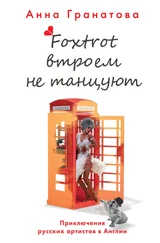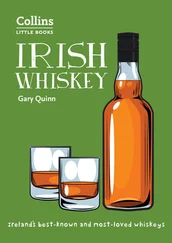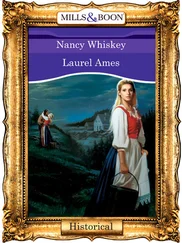The others came in behind her. Mark and Leo flanked her like lieutenants. “Lola Montes, this is Inspector Ned Swain,” said Constance. “Of the U.S. Postal Inspection Service—”
Leila cut her off. “Yeah, I know Swain,” she said. “He lied to me.”
“You know this guy, Leila?” said Leo, stepping up beside her.
“Sorry about that, Leila,” said Ned Swain.
“It’s Lola,” she said evenly.
“Swain represents the last of the uncorrupted U.S. intelligence apparatus,” said Constance. “He’s the one who says we need to evacuate.”
“Don’t those guys guard mailboxes?” asked Mark.
“That’s the Postal Police,” Ned answered. “I work for the Postal Inspection Service.” He closed the hood of the silly car. “America’s oldest intelligence agency. Born before the Republic. Ben Franklin’s shop, originally.”
“Swain’s been trying to find us for a while,” said Constance. “He followed you in, Lola. You’re why we have to leave here. And this has been my home for five years.”
Leila nodded to say sorry.
“He was probably running that Committee team that was trying to find you, but actually he must have been trying to keep them from finding you.”
Ned nodded proudly. “I also had to really find and follow you, using only postal resources,” he said, addressing Leila. “Tricky. We had you in Heathrow, but we lost you there, picked you up in LA, and then followed you to Portland. I had the bad guys lose you at that gas station but then I lost you on the bridge.”
“Then how’d you find us here?” queried Leo.
“We spotted an anomalous satellite cross-feed at nine thirteen last night. Pot farmers can’t do that.”
“How’d you get here so fast? You drive?” asked Mark, pointing to the Thing.
“He parachuted out of a drone half an hour ago,” said Constance. “He came to warn us. And he came alone.”
“Yeah,” said Ned. “You guys could have made me into plant food.”
“Make him take the eye test,” said Leila.
“Not at this time,” said Ned.
“It’s okay, Lola,” said Constance. “There are extenuating circumstances. Roman and I waived the eye test. We invoked the common-cause clause.”
“You wouldn’t want to overuse that clause,” said Mark. The three of them were still standing together, a united front.
“Look,” said Ned. “We both want to save America from a clutch of greedy dukes, right? That’s our common cause.”
“I’m not really in this for America,” said Leila.
“Do we still have to call it America after we save it?” asked Leo.
Swain was caught off guard by Leo’s question. “We’ll have to table that point, Crane. There’s no time now. The Postal Inspection Service isn’t the only shop that can locate people. I managed to slow their feed, but if I’m here, the Bluebirds won’t be far behind. We have an hour, maybe.”
“Your friends’ black helicopters?” said Leila.
“They’re not my friends and they’re not helicopters. They’re called Kestrels and you won’t see them coming.”
“He’s right,” said Constance. “We have to move. Right now.” She started loading laptops from her wheelbarrow into the pony panniers. She was losing her cool, moving too fast.
Trip Hazards staggered into the barn, his eyes wide and white and bloodshot in his soot-blackened face. A corner of his heavy coat was still smoldering. He hacked and spit and hunkered down on his knees.
Constance ran to him. “Tom, are you okay?” She held him and batted at his smoldering coat.
“I’m high as fuck. But yeah.”
“You destroyed everything?”
“All but the latest cultivars,” said Trip, lifting proudly a bouquet of novophylum wrapped in a big cone of soggy paper.
His smoky entrance had dumped a bunch of haste and urgency into the barn. Leo moved to load laptops onto the pony. Mark went to the silly car.
Leila didn’t move. She needed a few more seconds. She thought of her little family behind her, and the maybe-one-day baby inside of her. Was this the best way to help them? Like on a Magic 8 Ball, the answer soon floated up. All signs point to yes. Then she heard Constance say to Trip, quietly, “Baby. Outside just now, Ticonderoga mis-pronouned. He said you people, not we. You have to verify him.”
Mark was scoping the VW that was supposed to get him down a mountain thick with forest and then two hundred fifty miles up the Oregon coast. The seats looked like lawn chairs. The floor was bare metal. The windshield was folded down, its glass badly cracked.
“This thing really gonna get us outta here?” he asked Ned.
“Well, we can’t parachute up, you know?” said Ned. “But, yeah, don’t worry. I’ll get you to those coordinates. And this is no ordinary Thing, I gotta say. I think these came with those one-point-six, flat-four, air-cooled engines. This has a big-bore kit. Two-point-six, two-point-seven, maybe. Plus six inches more suspension. Bigger brakes.”
It meant nothing to Mark. He was annoyed when men assumed shared mechanical knowledge; he didn’t know how anything worked, or ran. But this was no Gulfstream V. Then Mark realized with disappointment that if all this went down the way it should, his private-aircraft days were over. That eye test had made him more open to the politics, but he knew that he still liked nice stuff, probably always would. The kind of stuff that there wasn’t enough of to go around. That six-burner French cast-iron stove. The wine fridge.
He was getting into the passenger seat of the Thing when he saw Hazards coming at him quickly. Smudged as he was, and red-eyed, he looked like a demon. In a swift motion, he had the back of Mark’s neck held tight in one of his huge hands.
“What the fuck!” Mark yelled, resisting as Hazards put his other hand on Mark’s sternum, and brought their faces close together. Mark was about to deploy the head-butt for the second time in two days, but then he felt the other man’s hand lying soft on his own heart; no threat, no danger. On the contrary, there was a sort of rise in Mark that he was not at all comfortable feeling so close to another man’s face and looming body. Hazards held Mark’s head and gaze for a long time — four syrupy seconds, maybe — and then released.
“He’s good,” Hazards called back to Constance. “He still wants stuff. But he’s good.”
“I’m glad we got that out of the way,” said Mark huffily; he sat down quickly in the Thing. Roman rolled open a door at the other end of the barn. Ned Swain got in the driver’s seat and started the engine, which did indeed sound more powerful than such a vehicle’s engine is supposed to sound. He handed Mark a World War I Flying Ace sort of goggled leather helmet and put one on himself. Mark donned the headgear and looked around to show Leo and Leila. Leo was putting a heavy-looking backpack on Leila. Mark whistled sharply, and they both turned. Though burdened beneath her pack, Leila gave him a real thumbs-up.
“Be careful, Mark,” she said.
“Go with God,” said Leo Crane.
Chapter 37: 45°40′04.4"N 123°56′27.9"W
Evening had fallen. The surf growled Pacifically at the dusk-dappled sand. Mark was standing on a wide and log-strewn beach in the lee of a house-size boulder. A chill breeze was coming off the sea and he had only his corduroy jacket for outerwear.
He had been waiting for over an hour; had watched the sun drop below the sea, turning the sky orange, then vermilion, then bloodred. Was it Patel coming for him? Singh? Straw had said only I’ll send a Zodiac.
Mark and Swain had been thirteen hours in that Thing. Swain really pushed it down the mountain and across the 5, and then back into a network of small roads through the Coast Range. A Cascadian Paris — Dakar.
Читать дальше












